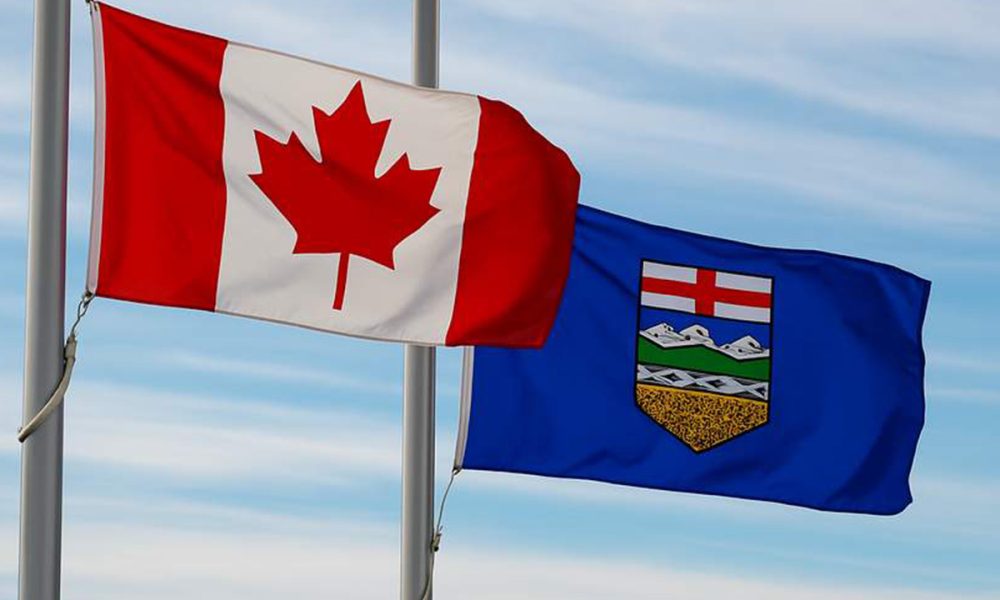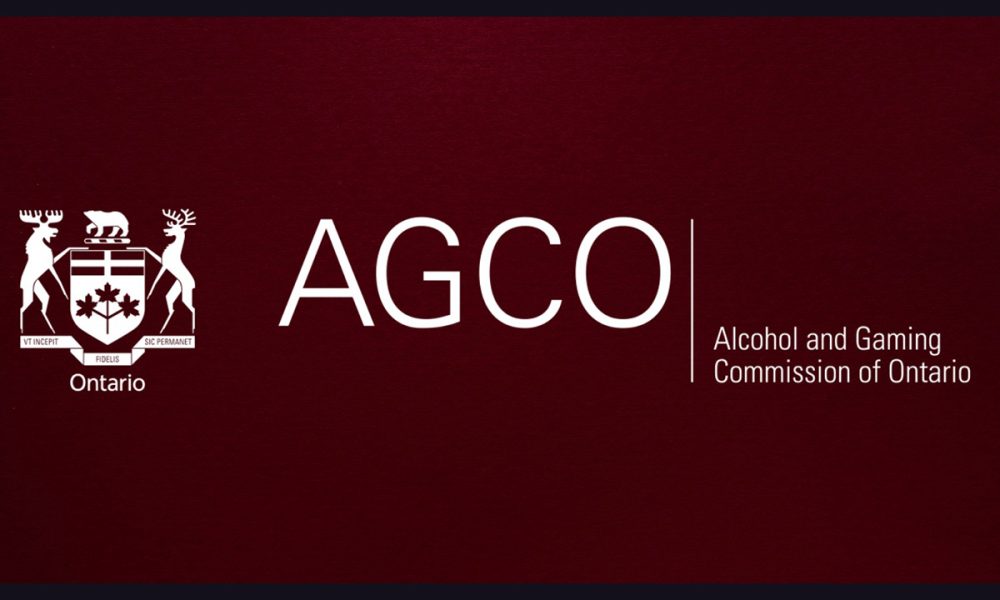Canada
PlayMichigan.com: Sports betting drops for first time in online era
Michigan experienced its first month-over-month decline in sports betting since launching online sports betting earlier this year, an unsurprising result as the sports calendar slowed in April. But the seasonal slowdown didn’t stop the state from becoming the quickest in the U.S. to $1 billion in online wagering. This as online casinos continued to dwarf sports betting with another month of revenue that neared $100 million, according to PlayMichigan, which analyzes and researches the state’s regulated online gaming and sports betting market.
“Sports betting gets the lion’s share of attention, but it will take years for Michigan’s sportsbooks to reach the kind of revenue that online casinos are already producing,” said Jessica Welman, analyst for PlayMichigan.com. “In addition, online casinos aren’t susceptible to the same seasonal ebbs and flows like sports betting. That said, $1 billion in less than four months of online sports betting is no minor feat either.”
Relying mostly on regular season baseball and NBA games to generate action, Michigan sportsbooks accepted $249.9 million in online handle in April, according to official data released Friday by the Michigan Gaming Control Board. That total was down 30.5% from $359.5 million in March. Combined with the state’s $24.2 million retail handle, which was released last week, Michigan’s online and retail sportsbooks collected $274.2 million in bets, 91.1% of which were made online. The combined handle was down 28.5% from $383.7 million in bets in March.
The total handle will likely keep Michigan at No. 5 in the U.S., behind New Jersey, Nevada, Pennsylvania, and Illinois. But with $1.03 billion in online wagers made from the launch of online sports betting on Jan. 21 through April 30, Michigan is the quickest of any state to reach $1 billion in online wagers.
April’s gross operator revenue from online betting slipped to $20.4 million, down 36.8% from $32.3 million in March. Adjusted gross revenue fell to $10.9 million from the record $19.0 million generated in March. That revenue yielded just $312,824 in state taxes. Promotional credits continue to sap the state’s take, even as the promotional spend fell to $9.5 million in April.
“Sportsbooks are in a generally healthy position heading into the typical summer slowdown, especially considering Michigan’s pro teams have not done much to spur interest,” said Matt Schoch, analyst for PlayMichigan.com. “Tax revenue is still a concern, and we will likely have to wait until football season to see significant growth in sports betting again. But with the Olympics this year and the NBA Finals later than usual, sportsbooks can look forward to a busier-than-normal summer. Ideally, that will positively affect tax revenue, too.”
FanDuel/MotorCity Casino topped online operators with a $74.2 million online handle, down from $107.2 million in March. April’s action produced $7.0 million in gross sports betting receipts for FanDuel, down from $7.8 million in March, resulting in a market-best $5.2 million in taxable revenue, up from $5.0 million.
DraftKings/Bay Mills Indian Community jumped to No. 2 with $61.5 million in wagers, down from $76.5 million in March. Gross gaming revenue dropped to $3.4 million from $6 million in March, leading to $1 million in adjusted revenue, down from $3.7 million. BetMGM/MGM Grand Detroit was third in betting volume with $54.9 million, down from $92.6 million in March. Gross receipts fell to $5.5 million from $8.7 million, and taxable revenue dropped to $3.8 million from $6.4 million.
The online market leaders were followed by:
Barstool/Greektown Casino ($24.8 million handle, down from $39.6 million in March; $1.2 million adjusted gross revenue, down from $3.6 million)
PointsBet/Lac Vieux Desert Band of Lake Superior Chippewa Indians ($14.1 million handle, down from $14.2 million; -$355,073 AGR, down from $2.2 million)
William Hill/Grand Traverse Bay Band of Ottawa and Chippewa Indians ($7 million handle, down from $11 million; -$8,162 AGR, down from $1 million)
FOX Bet/Little Traverse Bay Bands of Odawa Indians ($5.5 million handle, down from $7 million; $163,175 AGR, down from $503,063)
BetRivers/Little River Band of the Ottawa Indians ($2.8 million handle, down from $4.8 million; -$28,856 AGR, down from $537,644)
Twin Spires/Hannahville Indian Community ($1.9 million handle, down from $3.2 million; -$12,190 AGR, down from $209,572)
Wynn/Sault Ste. Marie Tribe of Chippewa Indians ($1.9 million handle, down from $2.2 million; $89,902 AGR, down from $418,529)
Golden Nugget/Keweenaw Bay Indian Community ($874,114 handle, up from $789,792; -$43,215 AGR, down from $70,649)
Four Winds Sportsbook/Pokagon Band of Potawatomi Indians ($345,719 handle, down from $385,009; $107,524 AGR, up from $51,196)
“FanDuel, BetMGM and DraftKings continue to flex their marketing advantages to separate themselves from the state’s other operators,” Schoch said. “As the trio entrench themselves at the top of the market, it will be increasingly difficult for any other operator to break through.”
Online casinos and poker
Michigan’s online casinos and poker rooms continued to impress with $94.9 million in April — down slightly from $95.1 million in March. That total actually represents a small increase in revenue per day, however. Online casinos and poker rooms combined to win $3.16 million per day for the 30 days of April, up from $3.07 million per day in the 31 days of March.
The win yielded adjusted gross receipts of $88.9 million, up from $88.7 million in March, generating $17.8 million in tax revenue for the state and $5.2 million in local taxes.
April’s revenue should keep Michigan close to Pennsylvania and New Jersey, the nation’s two largest iGaming markets in the U.S., though neither of those states has reported April data yet. The biggest difference is where the states are in maturity. New Jersey launched online casinos in 2013 and Pennsylvania launched in 2019.
“There is no precedent for how Michigan has responded to the launch of online casinos,” Welman said. “It’s safe to say that at some point Michigan will challenge to be the largest online casino market in the U.S. The only question is when.”
Other highlights from April:
BetMGM/MGM Grand Detroit led with $36.8 million in adjusted receipts, yielding $7.2 million in state taxes.
FanDuel/Motor City was second with $14.1 million in AGR, producing $2.8 million in state tax. That total edged DraftKings/Bay Mills’ $14 million in AGR.
For more information and analysis on regulated sports betting in Michigan, visit PlayMichigan.com/news.
About the PlayUSA.com Network:
The PlayUSA.com Network is a leading source for news, analysis, and research related to the market for regulated online gaming in the United States. With a presence in over a dozen states, PlayUSA.com and its state-focused branches (including PlayMichigan.com, PlayNJ.com, and PlayPennsylvania.com) produce daily original reporting, publish in-depth research, and offer player advocacy tools related to the advancement of safe, licensed, and legal online gaming options for consumers. Based in Las Vegas, the PlayUSA Network is independently owned and operated, with no affiliations to any casino.
AGLC
Casino ATM Scam in Edmonton Reveals Money Laundering and Drug Links

Law enforcement in Alberta continues to search for the last suspect in a sophisticated fraud operation that targeted ATMs in Edmonton-area casinos and resulted in over CAD 1 million ($720,487) in losses throughout Western Canada.
The Royal Canadian Mounted Police (RCMP) has confirmed that Hisham Ismaeel, 28, remains at large with a province-wide warrant for his arrest. He faces charges of fraud exceeding $5000 and possessing proceeds of crime. Police have already arrested four other men linked to the scheme. Investigators describe the operation as a well-planned effort to exploit financial systems and clean dirty money.
The accused, Elliot Miao, 42, Van Bau Ta, 39, Hassan Jaafar Haydar Ahmad, 37, and Dennis Jones, 42, showed up in the Alberta Court of Justice last week. They face charges from fraud and money laundering to owning criminal property. Miao also has a narcotics trafficking charge after police found cocaine when they searched with warrants.
Investigators claim the group made coordinated withdrawals at several casino ATMs, timing their transactions to avoid getting caught. This action messed up ATM networks in the area and showed flaws in the systems that banks and casinos use to stop misuse.
The RCMP Federal Policing Northwest Region led an investigation that involved six search warrants in Edmonton. The Edmonton Police Service, the Financial Transactions and Reports Analysis Centre of Canada (FINTRAC), Alberta Gaming, Liquor and Cannabis (AGLC), and several banks supported this effort. Officials said the case shows how teamwork between public agencies and the private sector plays a key role in combating modern financial crime.
AGLC representatives pointed out that casino operators in the province must follow strict reporting and surveillance rules under Canada’s anti-money laundering laws. The specific casinos affected remain unnamed, but the Edmonton region has seven licensed facilities. AGLC said its policies helped spot problems and backed the RCMP’s investigation.
Compliance experts say this fraud shows how criminals change their methods to take advantage of weak spots in reporting limits and transaction checks. They claim that casinos, which deal with lots of cash, are still easy targets unless they keep improving their detection systems and teach their front-line workers to notice coordinated actions like several big withdrawals happening one after another.
For now, the case highlights both the money and crime aspects of casino-related fraud. Besides the million-dollar losses, finding drugs during the raids points to a bigger criminal operation where financial crimes and drug dealing overlap.
The post Casino ATM Scam in Edmonton Reveals Money Laundering and Drug Links appeared first on Gaming and Gambling Industry in the Americas.
Bragg Gaming
Bragg Confirms Cyber Attack – Hackers Access Internal IT Systems

Bragg Gaming Group, a leading online gaming technology provider, has confirmed a major cybersecurity incident that compromised its internal IT infrastructure in the early hours of Saturday, August 16, 2025.
The company detected unauthorized intrusion attempts that successfully breached its internal network, triggering an immediate and comprehensive incident response.
Key Takeaways
-
Bragg Gaming Group experienced a cybersecurity breach involving access to internal IT systems.
-
No customer personal data or payment information appears to have been compromised.
-
The company has enacted full containment and investigation protocols.
Details of the Breach
According to a preliminary forensic analysis by Bragg’s internal security team, the attack was a targeted breach aimed at the company’s internal computer environment. While the exact method of intrusion is still under investigation, early indicators suggest a sophisticated exploit of internal network vulnerabilities.
Fortunately, the company’s customer-facing systems, including sensitive user data and financial information, appear to have been unaffected. Bragg’s existing encryption protocols and access control systems successfully prevented the attackers from accessing customer information.
Immediate Response Measures
In response to the breach, Bragg launched a multi-tiered containment strategy, including:
-
Network Segmentation to isolate affected systems
-
Enhanced Monitoring of data flows across its Remote Games Server (RGS) platform
-
Security Audits of critical infrastructure, including the Bragg Hub and PAM systems
-
Engagement of Independent Cybersecurity Experts to assist in incident analysis and system hardening
Bragg’s Security Operations Center has also elevated its alert level, initiating 24/7 monitoring across all server clusters and network endpoints. In addition, company-wide penetration testing is now underway to proactively identify any residual vulnerabilities.
Business Continuity Maintained
Despite the severity of the breach, Bragg reports that its operations remain unaffected. All gaming services, including iCasino and sportsbook offerings across regulated markets, continue to function without disruption.
“While this incident is deeply concerning, we are confident in the rapid and thorough response initiated by our team,” a company spokesperson stated. “We remain committed to protecting our infrastructure, our partners, and most importantly, our players.”
Looking Ahead
As part of its response, Bragg has also launched mandatory security awareness training for all employees to reinforce best practices and prevent future incidents.
Cybersecurity analysts will continue working with Bragg to determine the full scope of the attack, improve system resilience, and maintain the trust of its users and stakeholders.
Bragg’s handling of the incident highlights both the evolving nature of cybersecurity threats and the importance of robust, responsive defense systems in the digital gaming sector.
Source: cybersecuritynews.com
The post Bragg Confirms Cyber Attack – Hackers Access Internal IT Systems appeared first on Gaming and Gambling Industry in the Americas.
AGCO
AGCO Removes Cap on Seller Commission for Charitable Lottery Products

The Alcohol and Gaming Commission of Ontario (AGCO) has updated several lottery policies to remove the cap on seller commission for Paper Raffles and Media Bingo, along with removing the prohibition on Catch the Ace paper lotteries, to align with other charitable lottery products.
Licensed charities may now negotiate commissions directly with sellers and determine commissions, provided they are reasonable and tied to the cost of service provided by the seller.
These updates further the AGCO’s commitment to adopt an outcomes-based regulatory approach and reduce burden for the charitable gaming sector. Local charitable organizations will have greater flexibility to make decisions that best serve their fundraising objectives.
Important Reminders
• Charities must still receive approval for other expenses incurred under their licence and retain receipts for seller commission paid.
• Licensing authorities will not require documentation to be submitted as part of the application process, however, charities are still subject to audit to determine compliance.
• Charities are reminded of their legal requirement to meet their obligations under the Criminal Code and with respect to conducting and managing a charitable gaming scheme.
• As with all licensed charitable lottery events, charities must take the necessary steps to ensure that they are conducting and managing the lottery event within Ontario.
For charitable gaming-related inquiries, email an AGCO Eligibility Officer at [email protected] or call AGCO Customer Service at 1-800-522-2876, Monday to Friday from 8:30 a.m. to 5 p.m.
The post AGCO Removes Cap on Seller Commission for Charitable Lottery Products appeared first on Gaming and Gambling Industry in the Americas.
-

 gaming3 years ago
gaming3 years agoODIN by 4Players: Immersive, state-of-the-art in-game audio launches into the next generation of gaming
-
EEG iGaming Directory8 years ago
iSoftBet continues to grow with new release Forest Mania
-
News7 years ago
Softbroke collaborates with Asia Live Tech for the expansion of the service line in the igaming market
-
News7 years ago
Super Bowl LIII: NFL Fans Can Bet on the #1 Sportsbook Review Site Betting-Super-Bowl.com, Providing Free Unbiased and Trusted News, Picks and Predictions
-
iGaming Industry8 years ago
Rick Meitzler appointed to the Indian Gaming Magazine Advisory Board for 2018
-
News7 years ago
REVEALED: Top eSports players set to earn $3.2 million in 2019
-
iGaming Industry8 years ago
French Senator raises Loot Boxes to France’s Gambling Regulator
-
News7 years ago
Exclusive Interview with Miklos Handa (Founder of the email marketing solutions, “MailMike.net”), speaker at Vienna International Gaming Expo 2018







